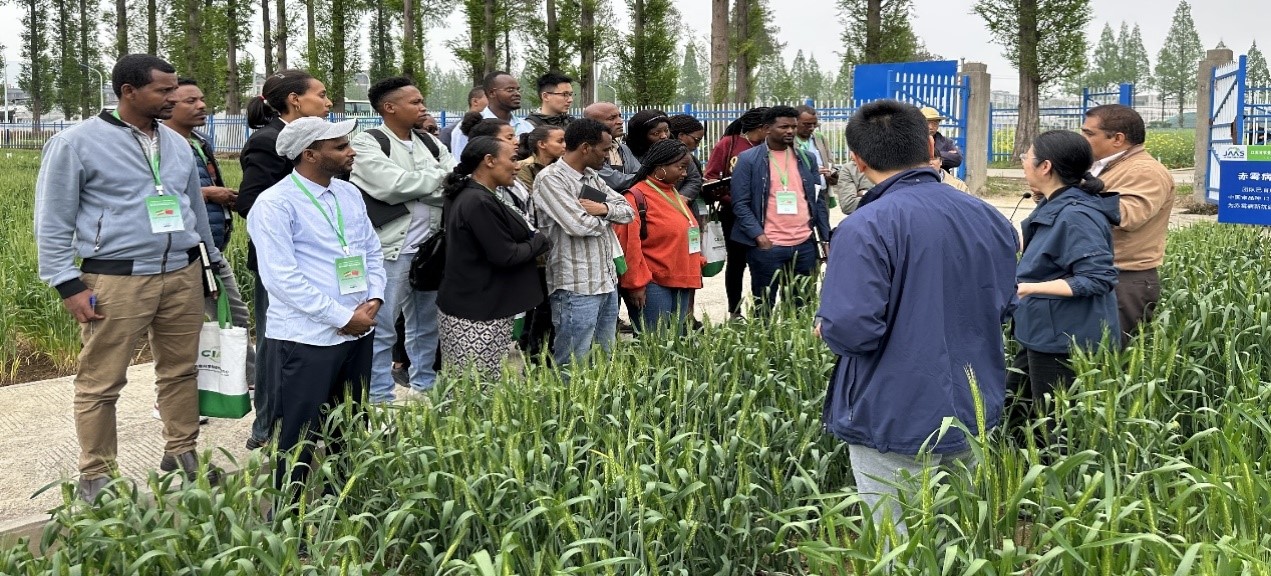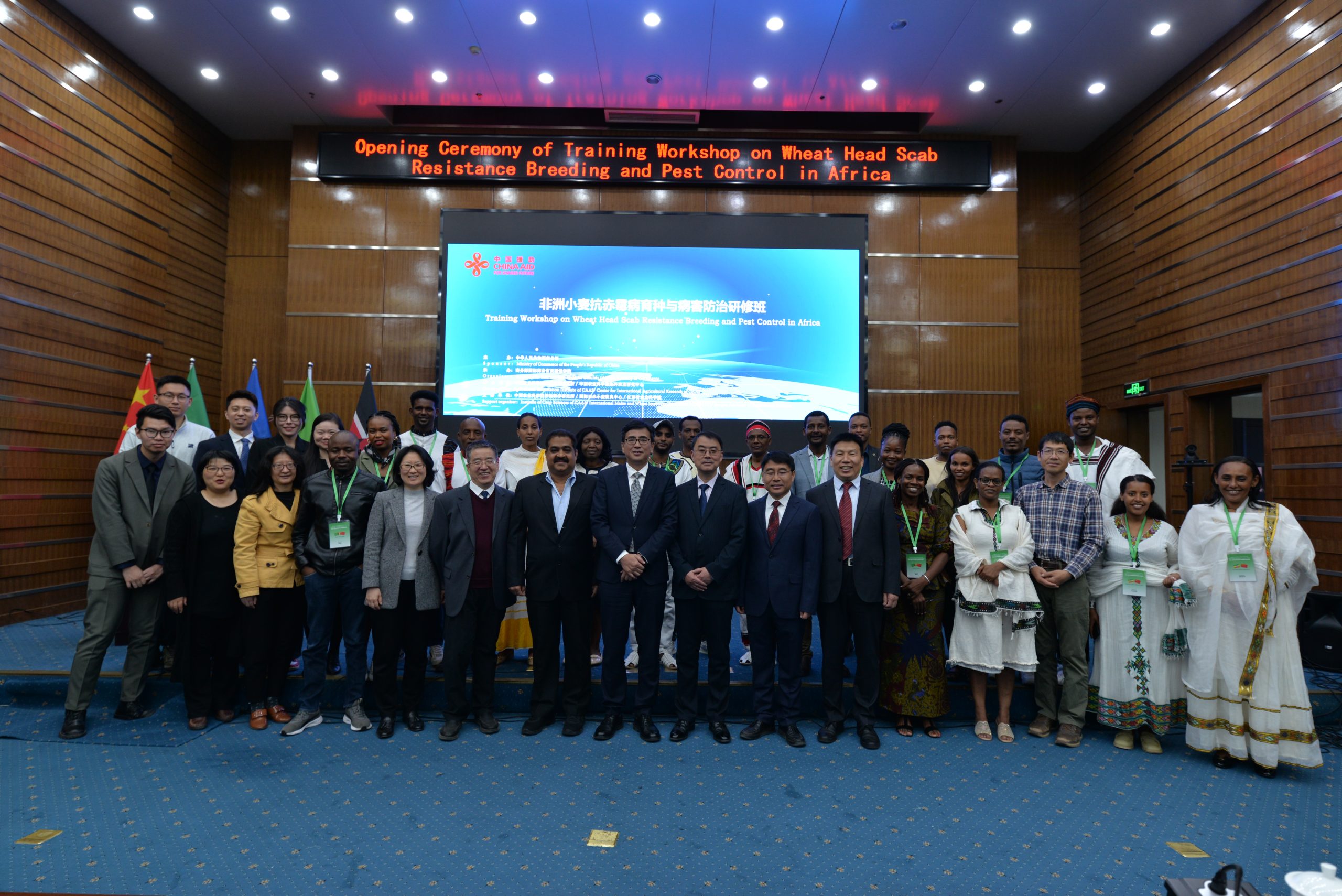While wheat acreage has been increasing across the whole of Africa, the sub-Saharan countries account for a significant proportion of the total growth and yield, equaling an area of approximately 3.1 million hectares and a production of more than 9 million tons. However, in recent years, Fusarium head blight (FHB) or head scab has become a major disease in the region, causing significant reductions in yield and quality due to the lack of resistant varieties and management tools.
In China, a successful wheat shuttle breeding program by the Chinese Academy of Agricultural Sciences (CAAS) and CIMMYT for improving FHB has existed since the 1980s. Additionally, CIMMYT and the Jiangsu Academy of Agricultural Sciences (JAAS) have provided an FHB screening station in Nanjing since 2019. With a wealth of experience in confronting the disease, this ongoing partnership can help to solve the challenges currently faced by farmers in Africa.
To this end, CAAS, JAAS, and CIMMYT organized a training workshop on FHB management for Africa, which took place with financial support from China Aid in Beijing and Nanjing, China, between 10 and 23 April 2024. Twenty participants, 45% of which were women, attended the workshop, with specialists in wheat breeding, pathology, seed quarantine, and other related fields at public institutions in Ethiopia, Zambia, and Lesotho.
“This is the first time China has worked with an international organization to conduct an agricultural training workshop for sub-Saharan Africa,” said Zhonghu He, CIMMYT distinguished scientist and country liaison officer in China.

Practical tools to target FHB
Experts from China and CIMMYT shared their successful experiences of FHB management, including breeding resistant varieties. The trainees benefitted from hands-on experience of FHB identification, disease screening (including inoculum preparation, inoculation, and scoring), mycotoxin quantification techniques, and wheat breeding.
At the end of the workshop, the participants were extremely pleased to observe the impressive progress made in China on wheat FHB both on breeding and disease control, and they expressed strong willingness to contribute to collaboration between Africa, China, and CIMMYT on more wheat breeding and research. Netsanet Bacha Hei from the Ethiopian Institute of Agricultural Research (EIAR) was impressed with the scientific and technical expertise provided in the training and mentioned that sub-Saharan Africa needs similar practical trainings to mitigate the threat of FHB. Similar opinions were echoed by Doreen Malekano Chomba from the Zambian Plant Quarantine and Phytosanitary Service (PQPS), who discussed the need to have an effective in-country surveillance and monitoring to assess and manage FHB in the region.

Xu Zhang, who heads the FHB research program at JAAS, is very appreciative of the collaborative work that has been going on for several decades between CIMMYT and China, highlighting that the workshop represents another step in understanding and managing FHB in sub-Saharan Africa and beyond, Zhang said, JAAS and CIMMYT has grown together through strong partnership.
“This training lays firm groundwork for future China-Africa-CIMMYT collaboration on mitigating the threat of FHB and improving wheat production and food security in sub-Saharan African countries,” said He.

 Climate adaptation and mitigation
Climate adaptation and mitigation 